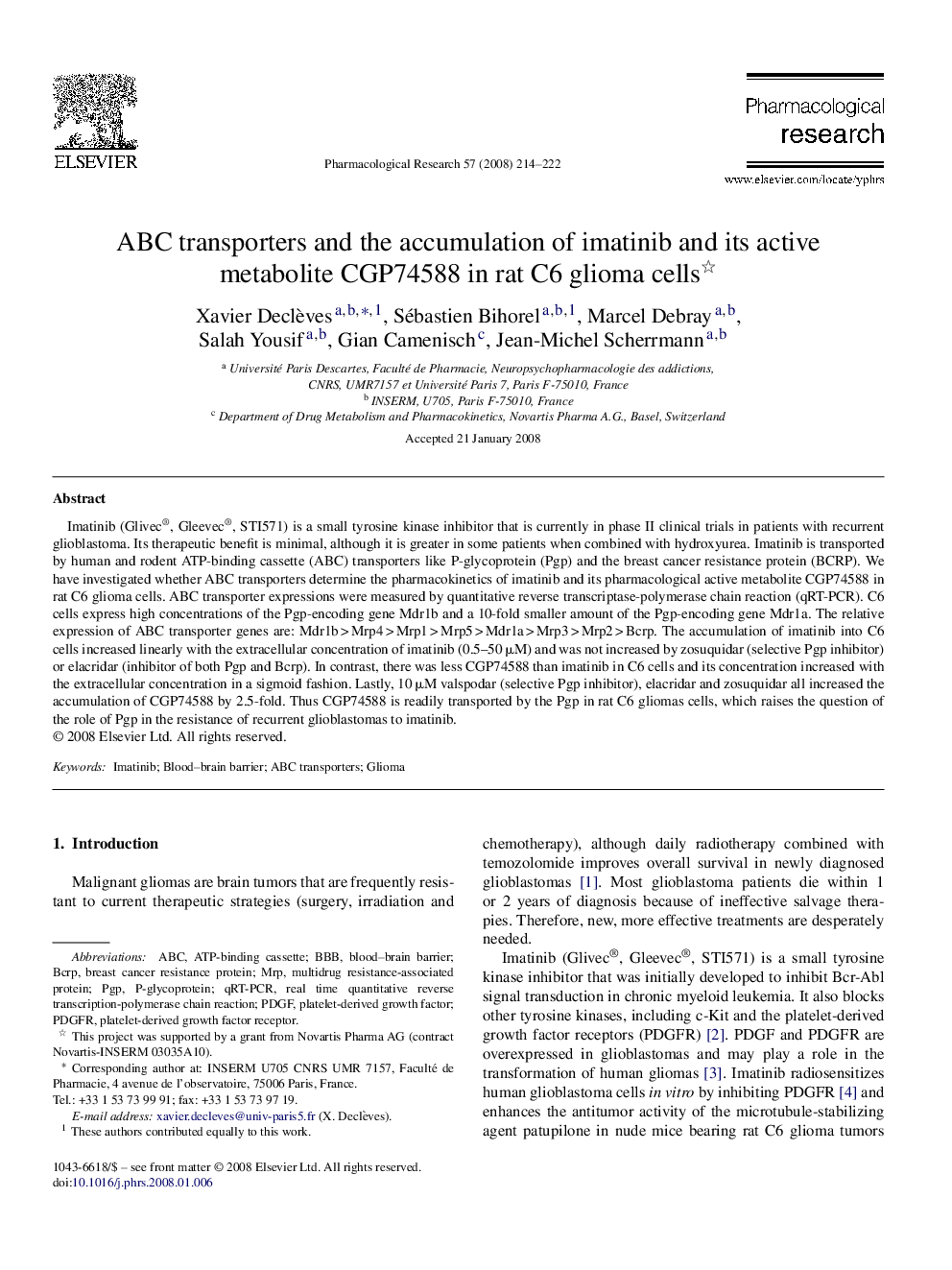| Article ID | Journal | Published Year | Pages | File Type |
|---|---|---|---|---|
| 2562609 | Pharmacological Research | 2008 | 9 Pages |
Imatinib (Glivec®, Gleevec®, STI571) is a small tyrosine kinase inhibitor that is currently in phase II clinical trials in patients with recurrent glioblastoma. Its therapeutic benefit is minimal, although it is greater in some patients when combined with hydroxyurea. Imatinib is transported by human and rodent ATP-binding cassette (ABC) transporters like P-glycoprotein (Pgp) and the breast cancer resistance protein (BCRP). We have investigated whether ABC transporters determine the pharmacokinetics of imatinib and its pharmacological active metabolite CGP74588 in rat C6 glioma cells. ABC transporter expressions were measured by quantitative reverse transcriptase-polymerase chain reaction (qRT-PCR). C6 cells express high concentrations of the Pgp-encoding gene Mdr1b and a 10-fold smaller amount of the Pgp-encoding gene Mdr1a. The relative expression of ABC transporter genes are: Mdr1b > Mrp4 > Mrp1 > Mrp5 > Mdr1a > Mrp3 > Mrp2 > Bcrp. The accumulation of imatinib into C6 cells increased linearly with the extracellular concentration of imatinib (0.5–50 μM) and was not increased by zosuquidar (selective Pgp inhibitor) or elacridar (inhibitor of both Pgp and Bcrp). In contrast, there was less CGP74588 than imatinib in C6 cells and its concentration increased with the extracellular concentration in a sigmoid fashion. Lastly, 10 μM valspodar (selective Pgp inhibitor), elacridar and zosuquidar all increased the accumulation of CGP74588 by 2.5-fold. Thus CGP74588 is readily transported by the Pgp in rat C6 gliomas cells, which raises the question of the role of Pgp in the resistance of recurrent glioblastomas to imatinib.
